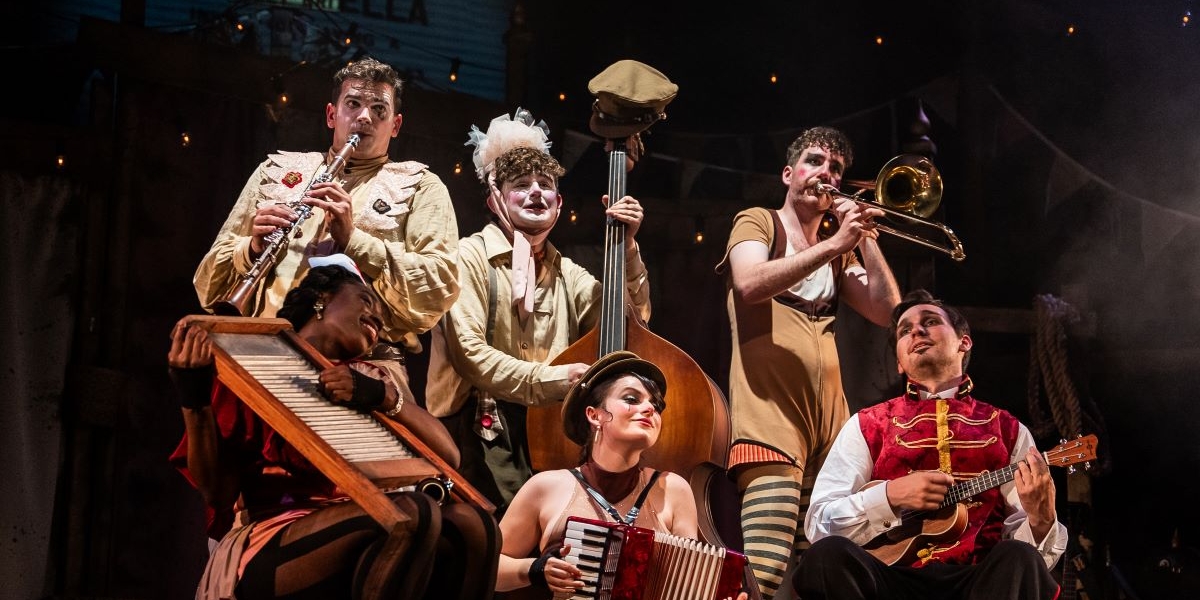It is sixty years now since the first production of ‘Oh, What A Lovely War’, one of the stand-out artistic events of the 1960s. Joan Littlewood’s sharp-edged but poignant satire of the politicians and generals and financiers of the First World War not only put her and her company, Theatre Workshop, on the map, but helped to reconfigure the scope of musical theatre in this country and started the erosion of respect for The Establishment and its institutions that continues to this day. Moreover it has had a huge impact on the pattern and methods of comedy whether in the form of Monty Python or, nearer our own time, ‘Blackadder Goes Forth.’
The show still stands up very well as an example of how to do fierce, brittle satire combined with heart and pathos. Though it is somewhat ironic that its central critique – that the armies were ‘lions led by donkeys’ – has now become the popular orthodoxy rather than an iconoclastic view. Historians, meanwhile, have moved in a more nuanced direction. But this does not affect the power and impact of the evening as we are taken through ‘the war game’ against a backcloth of headline casualties and projected archival footage.
There are five performers, mostly recent young graduates from Rose Bruford College, and all in Pierrot-style white-face. The circus ambience sets the farcical and ironic tone in the same way as the Kit-Kat club in ‘Cabaret’. The actors have to inhabit a whirlwind of contrasted characters and do so with panache as they slip from one costume or significant prop to another. Moreover, all of these multi-talented people play a variety of musical instruments – trumpet, trombone, clarinet, double bass, violin, piano, accordion, ukelele and percussion. Coordinating the plethora of short scenes and numbers, whether snappy or poignant, must have been a huge endeavour for the whole team under director Nicky Allpress; but it passes off seamlessly.
The music is absolutely central to the emotional punch of the evening. Much of the bite and the pathos derive from the reworking of the old music hall songs of the day, sometimes with alternative lyrics provided by the soldiers in the trenches themselves. Just as in the Brecht/Weill ‘Threepenny Opera’, the simplicity of the words and the bleak austerity of the searing harmonies in the music makes these old music hall honky-tonk songs incredibly moving. All credit to Tom Neill and Ellie Verkerk for integrating so many of these special moments.
Likewise the costume, set and movement creatives have done a great job in providing a period feel to the setting while making the action fluid and accessible. Shabby-chic dominates, but there are some sharp uniforms when needed, together with inspired bits of camp, alternative fantasy. This is never a static tableau. Military manoeuvres are suggested, trenches evoked, the home front recreated – all with great economy and precision.
This is a genuine ensemble performance, so it is invidious to single out any of the uniformly excellent cast members above the others. But particular highlights lay in Chioma Uma’s heartfelt and straightforward rendition of ‘Keep the Home Fires Burning’, Euan Wilson’s inflexible and blinkered portrayal of Haig, and Harry Curley’s portrayal of an Anglican chaplain. Scenes that continue to resonate for me include the farcical drill parade full of sergeant-majorly gobbledygook; the braying laughter of wartime profiteers, the Christmas reconciliations across No Mans’s Land, and the exceptional ending where we move effortlessly into another realm of close-harmony singing as peace comes – alongside a recognition that few will talk of what they had witnessed.
But this show still continues to bear eloquent witness, not just on their behalf, but on behalf of all those still caught on the barbed-wire cruelties and contradictions of wartime.

